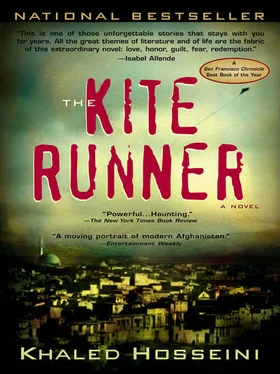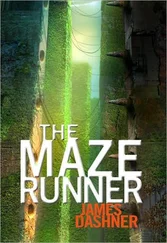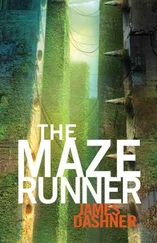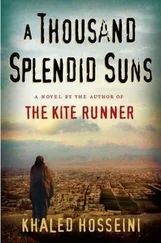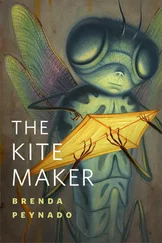“Checkpoint,” Farid grumbled. I slumped a little in my seat, arms folded across my chest, forgetting for a moment about the nausea. But I needn’t have worried. Two Pakistani militia approached our dilapidated Land Cruiser, took a cursory glance inside, and waved us on.
Farid was first on the list of preparations Rahim Khan and I made, a list that included exchanging dollars for Kaldar and Afghani bills, my garment and pakol – ironically, I’d never worn either when I’d actually lived in Afghanistan – the Polaroid of Hassan and Sohrab, and, finally, perhaps the most important item: an artificial beard, black and chest length, Shari’a -friendly – or at least the Taliban version of Shari’a . Rahim Khan knew of a fellow in Peshawar who specialized in weaving them, sometimes for Western journalists who covered the war.
Rahim Khan had wanted me to stay with him a few more days, to plan more thoroughly. But I knew I had to leave as soon as possible. I was afraid I’d change my mind. I was afraid I’d deliberate, ruminate, agonize, rationalize, and talk myself into not going. I was afraid the appeal of my life in America would draw me back, that I would wade back into that great, big river and let myself forget, let the things I had learned these last few days sink to the bottom. I was afraid that I’d let the waters carry me away from what I had to do. From Hassan. From the past that had come calling. And from this one last chance at redemption. So I left before there was any possibility of that happening. As for Soraya, telling her I was going back to Afghanistan wasn’t an option. If I had, she would have booked herself on the next flight to Pakistan.
We had crossed the border and the signs of poverty were everywhere. On either side of the road, I saw chains of little villages sprouting here and there, like discarded toys among the rocks, broken mud houses and huts consisting of little more than four wooden poles and a tattered cloth as a roof. I saw children dressed in rags chasing a soccer ball outside the huts. A few miles later, I spotted a cluster of men sitting on their haunches, like a row of crows, on the carcass of an old burned-out Soviet tank, the wind fluttering the edges of the blankets thrown around them. Behind them, a woman in a brown burqa carried a large clay pot on her shoulder, down a rutted path toward a string of mud houses.
“Strange,” I said.
“What?”
“I feel like a tourist in my own country,” I said, taking in a goatherd leading a half-dozen emaciated goats along the side of the road.
Farid snickered. Tossed his cigarette. “You still think of this place as your country?”
“I think a part of me always will,” I said, more defensively than I had intended.
“After twenty years of living in America,” he said, swerving the truck to avoid a pothole the size of a beach ball.
I nodded. “I grew up in Afghanistan.”
Farid snickered again.
“Why do you do that?”
“Never mind,” he murmured.
“No, I want to know. Why do you do that?”
In his rearview mirror, I saw something flash in his eyes. “You want to know?” he sneered. “Let me imagine, Agha sahib. You probably lived in a big two- or three-story house with a nice backyard that your gardener filled with flowers and fruit trees. All gated, of course. Your father drove an American car. You had servants, probably Hazaras. Your parents hired workers to decorate the house for the fancy mehmani s they threw, so their friends would come over to drink and boast about their travels to Europe or America. And I would bet my first son’s eyes that this is the first time you’ve ever worn a pakol .” He grinned at me, revealing a mouthful of prematurely rotting teeth. “Am I close?”
“Why are you saying these things?” I said.
“Because you wanted to know,” he spat. He pointed to an old man dressed in ragged clothes trudging down a dirt path, a large burlap pack filled with scrub grass tied to his back. “That’s the real Afghanistan, Agha sahib. That’s the Afghanistan I know. You? You’ve always been a tourist here, you just didn’t know it.”
Rahim Khan had warned me not to expect a warm welcome in Afghanistan from those who had stayed behind and fought the wars. “I’m sorry about your father,” I said. “I’m sorry about your daughters, and I’m sorry about your hand.”
“That means nothing to me,” he said. He shook his head. “Why are you coming back here anyway? Sell off your Baba’s land? Pocket the money and run back to your mother in America?”
“My mother died giving birth to me,” I said.
He sighed and lit another cigarette. Said nothing.
“Pull over.”
“What?”
“Pull over, goddamn it!” I said. “I’m going to be sick.” I tumbled out of the truck as it was coming to a rest on the gravel alongside the road.
BY LATE AFTERNOON, the terrain had changed from one of sun-beaten peaks and barren cliffs to a greener, more rural landscape. The main pass had descended from Landi Kotal through Shinwari territory to Landi Khana. We’d entered Afghanistan at Torkham. Pine trees flanked the road, fewer than I remembered and many of them bare, but it was good to see trees again after the arduous drive through the Khyber Pass. We were getting closer to Jalalabad, where Farid had a brother who would take us in for the night.
The sun hadn’t quite set when we drove into Jalalabad, capital of the state of Nangarhar, a city once renowned for its fruit and warm climate. Farid drove past the buildings and stone houses of the city’s central district. There weren’t as many palm trees there as I remembered, and some of the homes had been reduced to roofless walls and piles of twisted clay.
Farid turned onto a narrow unpaved road and parked the Land Cruiser along a dried-up gutter. I slid out of the truck, stretched, and took a deep breath. In the old days, the winds swept through the irrigated plains around Jalalabad where farmers grew sugarcane, and impregnated the city’s air with a sweet scent. I closed my eyes and searched for the sweetness. I didn’t find it.
“Let’s go,” Farid said impatiently. We walked up the dirt road past a few leafless poplars along a row of broken mud walls. Farid led me to a dilapidated one-story house and knocked on the wood-plank door.
A young woman with ocean-green eyes and a white scarf draped around her face peeked out. She saw me first, flinched, spotted Farid and her eyes lit up. “ Salaam alaykum , Kaka Farid!”
“ Salaam , Maryam jan,” Farid replied and gave her something he’d denied me all day: a warm smile. He planted a kiss on the top of her head. The young woman stepped out of the way, eyeing me a little apprehensively as I followed Farid into the small house.
The adobe ceiling was low, the dirt walls entirely bare, and the only light came from a pair of lanterns set in a corner. We took off our shoes and stepped on the straw mat that covered the floor. Along one of the walls sat three young boys, cross-legged, on a mattress covered with a blanket with shredded borders. A tall bearded man with broad shoulders stood up to greet us. Farid and he hugged and kissed on the cheek. Farid introduced him to me as Wahid, his older brother. “He’s from America,” he said to Wahid, flicking his thumb toward me. He left us alone and went to greet the boys.
Wahid sat with me against the wall across from the boys, who had ambushed Farid and climbed his shoulders. Despite my protests, Wahid ordered one of the boys to fetch another blanket so I’d be more comfortable on the floor, and asked Maryam to bring me some tea. He asked about the ride from Peshawar, the drive over the Khyber Pass.
“I hope you didn’t come across any dozd s,” he said. The Khyber Pass was as famous for its terrain as for the bandits who used that terrain to rob travelers. Before I could answer, he winked and said in a loud voice, “Of course no dozd would waste his time on a car as ugly as my brother’s.”
Читать дальше
